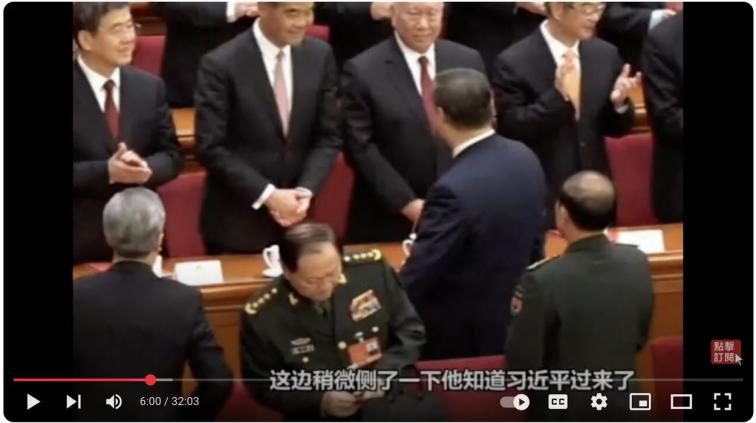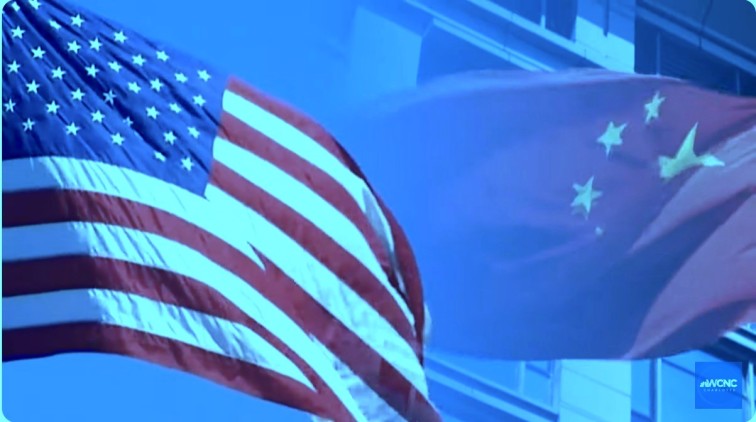TikTok
[People News] On September 19, Trump and Xi Jinping spoke by phone. Trump said, “This was a very good call,” and “We made progress on many very important issues, including trade, fentanyl, the need to end the Russia-Ukraine war, and approval of the TikTok agreement.” This shows that Washington held the initiative and achieved notable results.
On the other hand, Xi Jinping appeared to lower his posture—at least as reflected in the official report (Xinhua)—in the following three ways:
First, the usual phrase “at the invitation”, common in such reports, disappeared. This time it simply read: “On the evening of September 19, President Xi Jinping spoke by phone with U.S. President Trump.”
Second, the Taiwan issue was unusually absent. On January 17, during their first call of the year, Xi said he “hoped the U.S. would handle the Taiwan issue with caution.” On June 5, in their second call, Xi stressed: “The U.S. should handle the Taiwan issue prudently and avoid allowing a very small number of ‘Taiwan independence’ separatists to drag China and the U.S. into dangerous conflict and confrontation,” with his tone increasingly stern. But this time, Taiwan was not mentioned at all—softening his stance to create a better atmosphere.
Third, Xi referred to China and the U.S. as “allies” during World War II, saying the Chinese people would not forget America’s “valuable support”—words clearly intended to soothe Trump. Days earlier, during the CCP’s September 3rd Military Parade, Trump had posted on social media: “One big unanswered question is whether President Xi of China will acknowledge the enormous support and the ‘blood’ given by the United States to help China secure freedom from extremely unfriendly foreign invaders. Many Americans gave their lives to win victory and honour for China. I hope their bravery and sacrifice will be properly remembered!” He added, “Please give my warmest regards to Vladimir Putin and Kim Jong Un as you conspire against the United States.” (Xi appeared alongside Putin and Kim Jong Un at the parade).
In addition, Beijing made significant concessions—mainly on TikTok. Trump said, “Thanks for approving the TikTok deal.” The Chinese side tried to save face with convoluted wording (“China’s position on TikTok is clear. The government respects corporate wishes, welcomes companies conducting sound commercial negotiations based on market rules, and reaching solutions that comply with Chinese laws, regulations, and a balance of interests.”). In substance, however, this was still a compromise. (See Wang He: Why Did the CCP Make Concessions on TikTok?)
Yet Xi’s low posture and concessions received a response from Trump. On social media, Trump wrote: “I also agreed with President Xi that we will meet at the APEC summit in Gyeongju, South Korea, and I will visit China early next year, while President Xi will also visit the United States at an appropriate time.”
This is exactly what Xi Jinping craves: to meet Trump at the APEC summit in Gyeongju (Oct 31–Nov 1), and to arrange mutual visits next year.
Why does Xi crave this? Setting aside China’s economic woes and the broader U.S.-China relationship, personally, Xi desperately needs the “stabilisation and improvement of U.S.-China relations” as a political achievement. Since April of last year, Xi’s position has begun to wobble. (See Wang He: He Weidong “Disappeared”—Is Xi Jinping in Danger?)
The upcoming 20th CCP Central Committee Fourth Plenum in October is of extreme importance both to Xi and the CCP. On the surface, it will review the “15th Five-Year Plan,” but in reality, it concerns personnel arrangements for the 21st Party Congress. Over Xi’s decade-plus in power, has he led the CCP to prosperity—or dragged it into a ditch? Xi has already secured a third term; will he seek a fourth? If Xi steps down at the 21st Party Congress, who will succeed him? If he stays on another five years, who will he appoint to his team? And so on.
Now, if Xi wants to hold his position securely and monopolise power, he needs tangible achievements. For a long time, his foreign policy has been criticised by anti-Xi forces as having prematurely clashed with the U.S. before China was truly “strong,” thereby ending a two-decade-long strategic window of opportunity. The deterioration of U.S.-China relations in recent years has been one of the CCP’s major strategic failures.
This time, the Trump-Xi call resulted in confirmation of mutual visits between the two leaders next year—something Xi may present as an extra bargaining chip at the Fourth Plenum. But given Xi’s shaky position, engaging in “summit diplomacy” is no easy matter.
Last time, after their June 5 call, Trump said Xi had invited him and First Lady Melania to visit China, and that he in turn invited Xi to visit the U.S.: “As leaders of two great nations, we both very much look forward to these visits.” However, Beijing never publicly acknowledged this. This suggests Xi may no longer hold unquestioned authority.
From Trump’s side, he seems to have a clear grasp of the CCP’s political evolution. Earlier this year, he invited Xi to attend his inauguration and floated the idea of sending Cai Qi to conduct substantive negotiations with Washington—already signalling his awareness of Beijing’s internal dynamics.
This latest Trump-Xi call, with Xi’s lowered posture and concessions, once again reflects both the CCP’s internal crisis and Xi Jinping’s predicament.
(Dajiyuan)











News magazine bootstrap themes!
I like this themes, fast loading and look profesional
Thank you Carlos!
You're welcome!
Please support me with give positive rating!
Yes Sure!